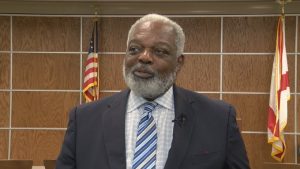Minnesota State Trooper Ryan Londregan faces charges, including second-degree murder, in the fatal shooting of motorist Ricky Cobb II during a traffic stop.
Minnesota State Trooper Ryan Londregan is now facing charges, including second-degree murder, in connection with the fatal shooting of Ricky Cobb II during a traffic stop in Minneapolis. The Hennepin County prosecutor, Mary Moriarty, announced the charges against Trooper Londregan, making him the first law enforcement officer she has charged in an on-duty shooting since taking office in 2022.
Also read | Who was Romeo Nance? Illinois mass shooting suspect who killed 7 in Joliet, dies in Texas
The incident occurred on July 31 when state troopers, including Londregan, pulled over Cobb for driving without taillights on Interstate 94. The stop escalated when troopers discovered a potential violation of a protective order involving a former romantic partner, leading to attempts to remove Cobb from his vehicle.
Video footage from police body cameras revealed the sequence of events. Troopers asked Cobb to exit his car, and a struggle ensued. Trooper Londregan fired his handgun twice as Cobb’s vehicle moved forward, ultimately resulting in Cobb’s death at the scene.
In addition to second-degree murder, Trooper Londregan is charged with first-degree assault and second-degree manslaughter. Legal experts note a shifting trend in prosecutors being more willing to charge law enforcement since the high-profile killing of George Floyd, but convictions remain rare.
Londregan, a 27-year-old trooper with less than two years of law enforcement experience, is currently on paid leave. His attorney, Peter B. Wold, has not commented on the charges.
Prosecutors argue that the troopers’ actions contradicted training protocols, emphasizing the need for law enforcement to avoid situations that increase the risk of a vehicle being used as a deadly weapon.
Also read | 6 people found shot to death in San Bernardino County desert of El Mirage, California| Watch Video
As this case unfolds, it underscores the ongoing challenges in addressing police use of deadly force and adds to the national conversation on accountability and reform within law enforcement agencies.






